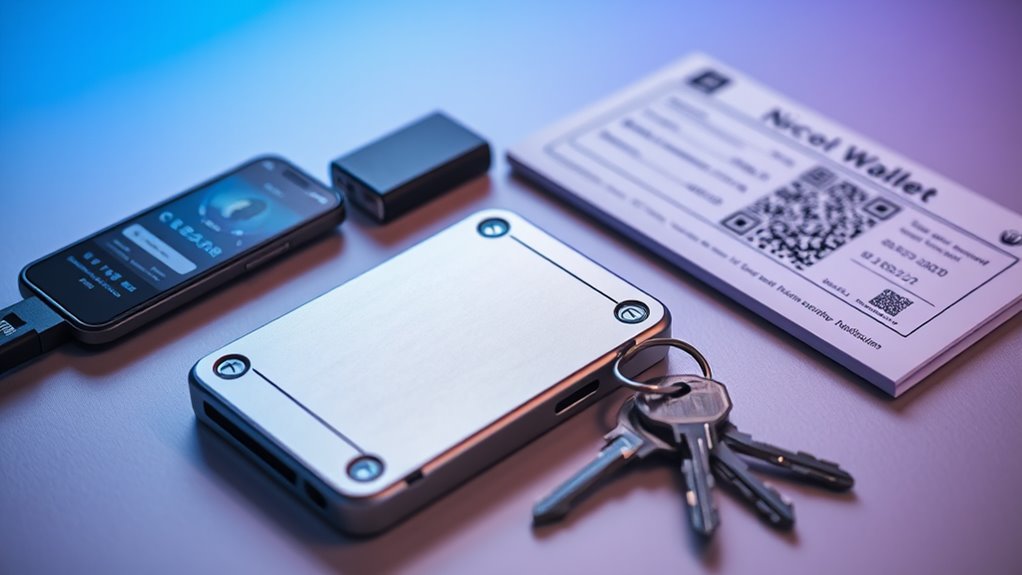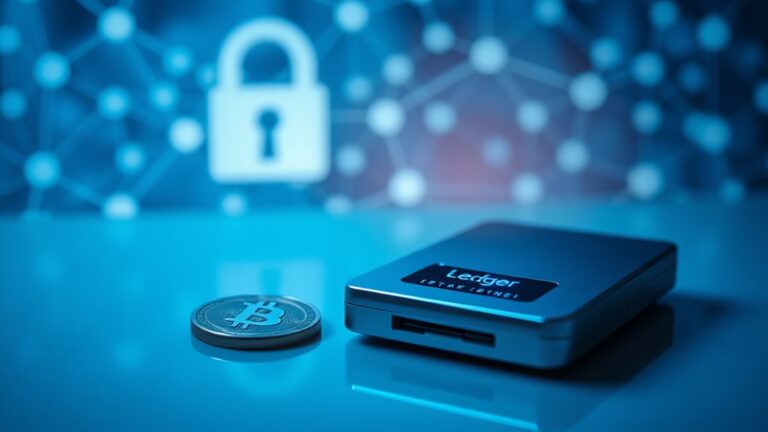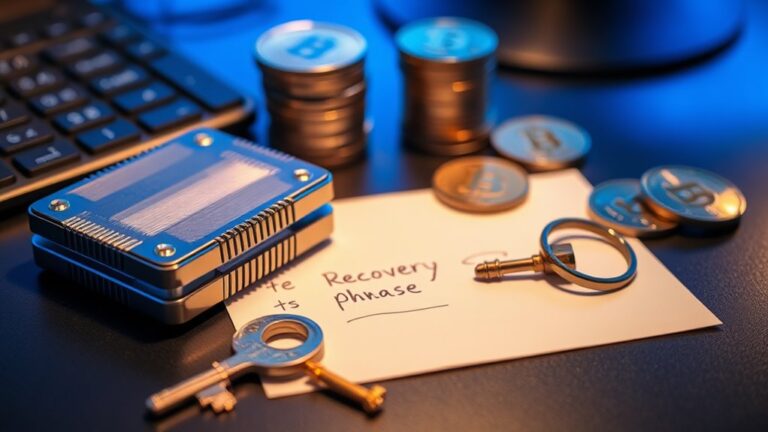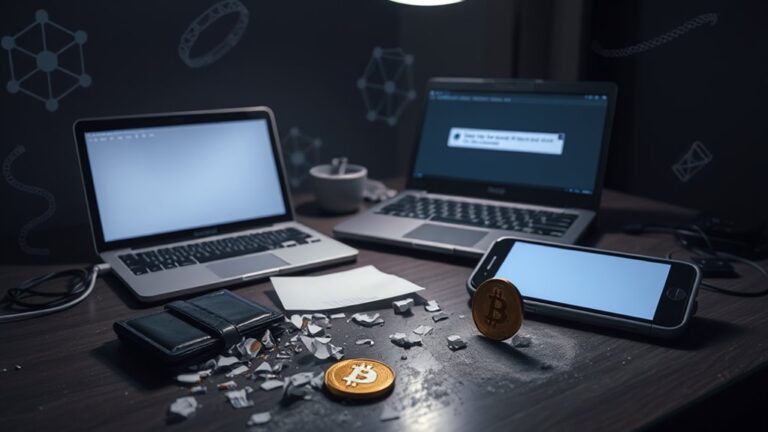Choosing a Good Crypto Wallet
Note: This post may contain affiliate links, and we may earn a commission (with No additional cost for you) if you purchase via our link. See our disclosure for more info. The gold and crypto world is constantly changing. This is not financial, investment, legal, or professional advice. So, please verify the information on the gold and cryptocurrency provider’s websites.
Choosing a good crypto wallet is no picnic. You have hot wallets—convenient but like leaving your front door wide open. Then there are cold wallets, which are safer but, good luck finding them when you really need access. Custodial wallets trust third parties with your keys, a gamble at best. And don't forget 2FA; it's like locking your door twice. With so many options, things get messy. Stick around for more insights that might save your assets.
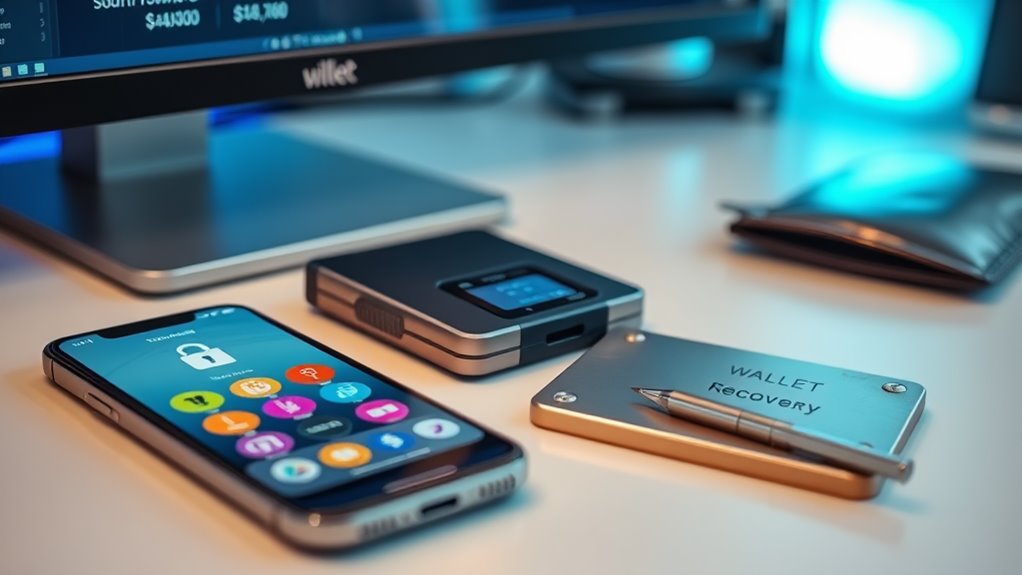
How does one even begin to choose a crypto wallet? With so many options out there, it's like picking a favorite ice cream flavor—overwhelming and slightly maddening.
First off, there are hot wallets and cold wallets. Hot wallets are online, which sounds convenient until you realize they're basically open doors for hackers. Cold wallets? They're offline and safer, but good luck remembering where you stored that tiny USB stick.
Hot wallets are convenient but risky, while cold wallets are safer—if you can remember where you hid that USB stick!
Then there's the custodial versus non-custodial debate. Custodial wallets, like those on exchanges such as Coinbase, mean you trust them with your keys. Non-custodial wallets? You control your own keys, which is empowering until you lose them. Have fun with that!
For maximum security, hardware wallets like Trezor and Ledger are the gold standard. They're a bit more pricey, but hey, it's your crypto we're talking about. Wallet compatibility is also essential, as some may not support all cryptocurrencies you wish to use.
Software wallets like Exodus and Trust Wallet are user-friendly and pretty easy to navigate. But don't get too comfortable; Exodus has some hefty fees, and Trust Wallet's asset claims might be inflated.
Speaking of convenience, some wallets offer two-factor authentication. But surprise! Not all do. Exodus, for instance, lacks native 2FA.
And then there's the issue of transparency. Closed-source wallets like Coinomi? Yeah, they might be hiding something. Backup options are critical to consider as they ensure you can recover your assets if your device is lost or stolen.
When it comes to supported cryptocurrencies, Exodus boasts over 270, while Guarda claims to support over 300 assets. But are you really going to use all those?
User experience matters too. A pretty interface is great, but if it's a pain to use, what's the point? Trezor and Ledger have established reputations, while newer players like Atomic Wallet don't quite cut it.
Frequently Asked Questions
What Is the Difference Between Hot and Cold Wallets?
Hot wallets? They're online and quick, perfect for trading.
But, hey, they're like leaving your front door wide open.
Cold wallets? They're offline, much safer.
Think of them as a locked vault, great for long-term storage.
Sure, they cost money and aren't as convenient, but who wants to deal with hacking nightmares?
So, it boils down to this: speed versus security.
Choose wisely or risk losing your precious crypto!
Can I Use Multiple Wallets for Different Cryptocurrencies?
Absolutely, using multiple wallets for different cryptocurrencies is not just a good idea; it's practically essential.
Why? It's all about security and organization. You don't want your Bitcoin mixed up with some random altcoin, right? Different wallets help keep things neat and safe.
Plus, if one wallet gets hacked or goes kaput, you're not out of luck on all fronts. It's like having a backup plan for your backup plan. Smart move.
Are Crypto Wallets Insured Against Loss or Theft?
Crypto wallets? Insured? Well, sort of. Retail insurance exists, like Boost Insurance, but it covers only certain breaches.
Theft? Maybe. Lost keys? Nope. Smart contract failures? Forget it. Most policies are as clear as mud, and the courts are even less friendly.
So, while some insurance is out there, it's not a safety net. Expect loopholes and limitations.
Welcome to the wild world of crypto, where nothing is truly safe.
How Do I Recover My Wallet if I Lose Access?
Losing wallet access? Not a fun day.
First, try that seed phrase. Enter it in a compatible wallet. But hey, don't mess up the order—typos are wallet kryptonite.
If that fails, check old devices or contact support. You might also consider professional help, but it'll cost you.
Remember, backups are your lifeline. Test them too!
Otherwise, it's a wild goose chase, and nobody likes those. Good luck!
What Should I Do if My Wallet Gets Hacked?
When a wallet gets hacked, panic isn't the answer.
First, shut down those devices. Seriously, unplug them.
Next, change all passwords. Yes, all of them. Maybe even throw in a password manager while you're at it.
Then, contact customer support. They might help, or they might not—who knows?
Finally, breathe. It's a mess, but it's not the end of the world. Just learn and move on, right?

